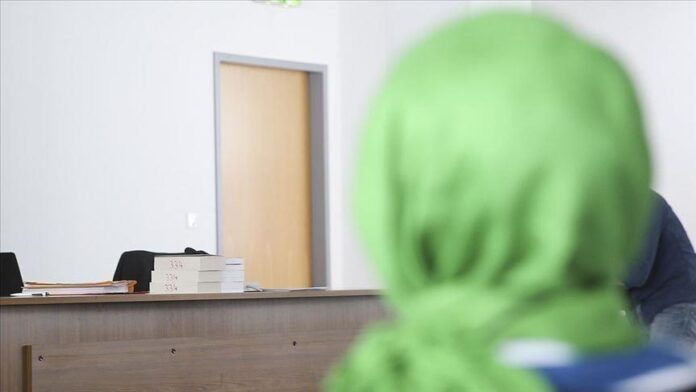PARIS: During the presidential election, the Islamic headscarf has become a significant contentious topic for purportedly being antagonistic to France’s essential concept of secularism.
However, the headscarf issue has always been a highly charged issue for the French political class and an obsessive phobia for rights.
Some have called it a symbol of surrender, an Islamist uniform — incompatible with French values and a way to impose Sharia on France.
The estimated 6 million Muslims in France are a minority, yet every election sparks a new discussion over the veil, with politicians promising to restore French values and gender equality through a selective or comprehensive ban.
With less than ten days until the second round of voting on April 24, the piece of clothing worn by Muslim women is being debated alongside other issues such as determining the retirement age, improving the purchasing power of the French, the Ukraine war, tax cuts on energy and fuel, health and security.
Marine Le Pen, a right-wing presidential contender, has made the veil a part of her platform and threatened to outlaw it in public settings if she is elected.
President Emmanuel Macron, whose government adopted controversial anti-separatism legislation, or “reinforcing the respect of the norms of the Republic,” to combat so-called Islamist radicalism, did not include the veil in his electoral platform.
However, he has been forced to often debate the matter in order to counter his opponent’s wicked rhetoric.
On Friday, the finalists were questioned by veiled Muslim women about their policies, with Le Pen claiming that she was firm on a ban and defended the choice of those wearing it out of their free will.
A hijab-wearing woman questioned Le Pen about her planned ban in a market in Pertuis, in the Provence-Alpes-Cote d’Azur area of southeastern France.
“There are several neighbourhoods where women who do not wear the cover are excluded. They are judged; they are isolated because they do not wear the veil,” said the National Rally candidate.

